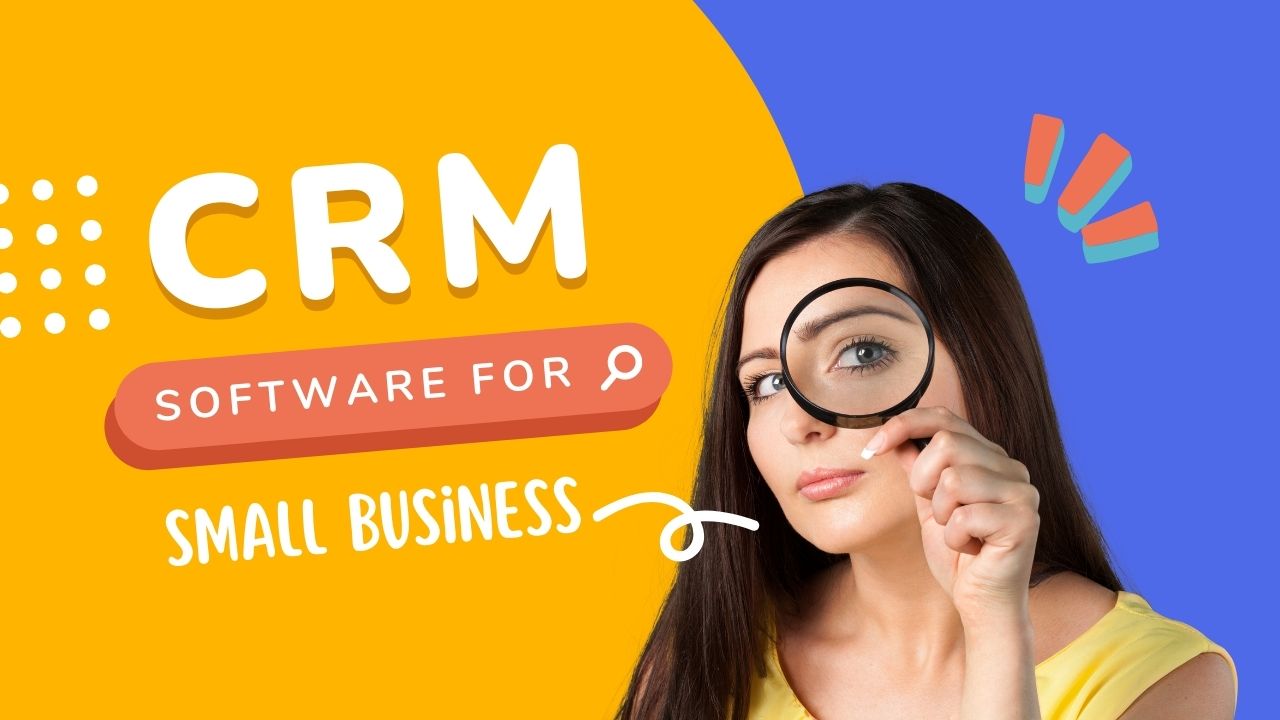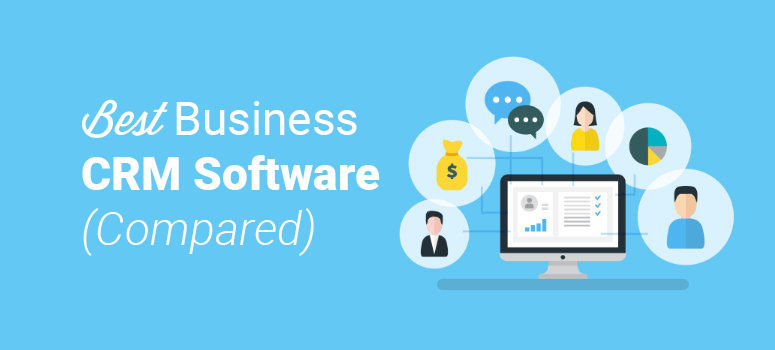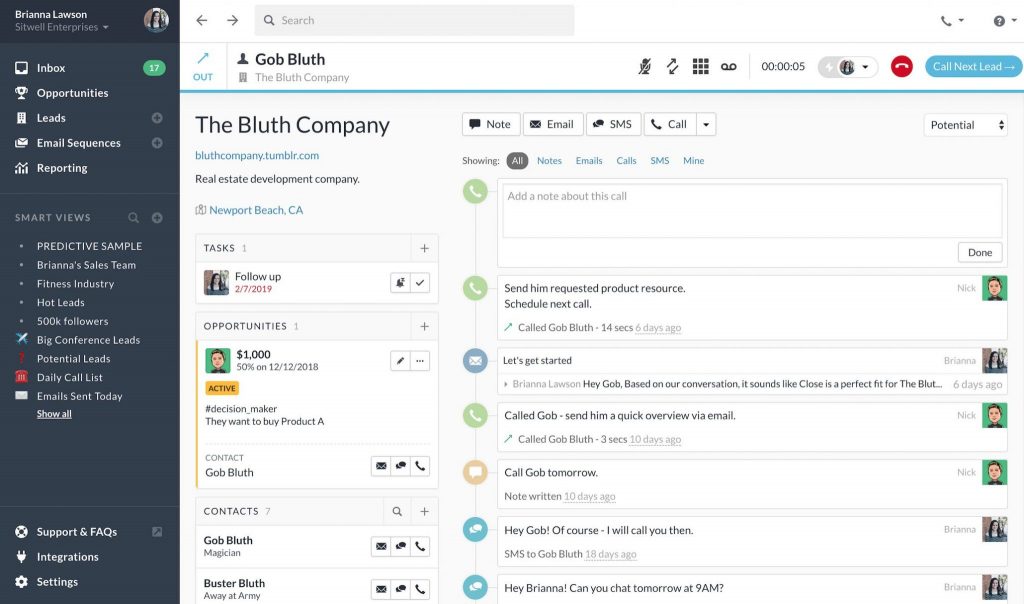The Best CRM for Your Small Business: A Comprehensive Guide
Finding the right Customer Relationship Management (CRM) software can feel like searching for a needle in a haystack. With so many options available, how do you choose the best CRM for your small business? This guide will break down the key features, benefits, and considerations to help you find the perfect fit.
Understanding Your Needs: Keywords: small business CRM needs, CRM requirements checklist, choosing the right CRM, CRM features for small businesses
Before diving into specific CRM software, it’s crucial to understand your business’s unique requirements. Ask yourself these key questions:
- What are your primary goals for using a CRM? Are you looking to improve customer service, streamline sales processes, manage marketing campaigns, or all of the above? Defining your objectives will guide your selection.
- What’s your budget? CRM software prices vary widely, from free options to enterprise-level solutions costing thousands of dollars per month. Determine a realistic budget before you start comparing options.
- How many users will need access to the CRM? This will impact the pricing and features you need.
- What are your technical capabilities? Some CRMs are more user-friendly than others. Consider your team’s technical skills and choose a system that’s easy to learn and use.
- What integrations do you need? Does your business use other software like email marketing platforms, accounting software, or e-commerce platforms? Ensure the CRM integrates seamlessly with your existing tools.

Let’s look at some key features to consider when evaluating different CRMs:
| Feature | Importance for Small Businesses | Example |
|---|---|---|
| Contact Management | Essential for organizing and tracking customer information | Storing customer details, communication history, purchase history |
| Sales Pipeline Management | Crucial for tracking leads and managing the sales process | Visualizing sales stages, forecasting sales, managing deals |
| Marketing Automation | Streamlines marketing tasks and improves efficiency | Email marketing, social media management, campaign tracking |
| Customer Service Tools | Improves customer satisfaction and support | Ticketing system, live chat, knowledge base |
| Reporting and Analytics | Provides valuable insights into business performance | Sales reports, customer segmentation, marketing campaign analysis |
| Mobile Accessibility | Enables access to CRM data anytime, anywhere | Accessing customer information on the go, updating deals remotely |
| Integrations | Connects CRM to other business tools for a streamlined workflow | Connecting with email marketing, accounting, and e-commerce platforms |
Top CRM Options for Small Businesses: Keywords: best CRM for small business, top-rated CRM, affordable CRM, easy-to-use CRM
Now let’s explore some popular CRM options that are well-suited for small businesses. Remember, the "best" CRM depends entirely on your specific needs and budget.
1. HubSpot CRM:
HubSpot offers a free CRM with robust features, making it an attractive option for startups and small businesses with limited budgets. Its user-friendly interface and extensive integrations make it easy to get started.
Key Features:
- Free plan available
- Easy-to-use interface
- Powerful contact management
- Robust sales pipeline management
- Strong marketing automation features
- Extensive integrations
2. Zoho CRM:
Zoho CRM is another popular choice, offering a wide range of features at competitive prices. Its scalability makes it suitable for businesses of all sizes, and its extensive customization options allow you to tailor it to your specific workflow.
Key Features:
- Affordable pricing plans
- Customizable interface
- Extensive features for sales, marketing, and customer service
- Strong mobile app
- Good integrations
3. Salesforce Essentials:
While Salesforce is known for its enterprise-level solutions, its Salesforce Essentials package is designed for small businesses. It offers a simplified version of the platform with essential features at a more affordable price point.
Key Features:
- Designed for small businesses
- Simplified interface
- Key sales and customer service features
- Integration with other Salesforce products
4. Pipedrive:
Pipedrive is a sales-focused CRM that’s particularly well-suited for businesses that prioritize sales pipeline management. Its intuitive interface and straightforward features make it easy to track deals and manage sales processes.
Key Features:
- Sales pipeline focused
- User-friendly interface
- Simple and intuitive design
- Strong mobile app
5. Freshsales:
Freshsales is a comprehensive CRM that offers a good balance of features and affordability. It provides a solid foundation for managing customer relationships, sales, and marketing activities.
Key Features:
- Comprehensive CRM features
- Affordable pricing
- Good customer support
- Strong integrations
Choosing the Right CRM: Keywords: CRM comparison chart, CRM selection criteria, evaluating CRM software, CRM decision-making
To help you compare these options, here’s a table summarizing their key features and pricing:
| CRM | Pricing | Best For | Strengths | Weaknesses |
|---|---|---|---|---|
| HubSpot CRM | Free plan available, paid plans | Startups, small businesses with limited budgets | Easy to use, free plan, extensive integrations | Limited advanced features in free plan |
| Zoho CRM | Various pricing plans | Businesses of all sizes | Scalable, customizable, affordable | Can be overwhelming for beginners |
| Salesforce Essentials | Paid plans | Small businesses needing a simplified Salesforce | Integration with other Salesforce products | Can be more expensive than other options |
| Pipedrive | Paid plans | Sales-focused businesses | Simple and intuitive, strong pipeline management | Limited marketing automation features |
| Freshsales | Paid plans | Businesses needing a balance of features | Comprehensive features, affordable | Less widely known than some competitors |
Implementation and Training: Keywords: CRM implementation, CRM training, CRM onboarding, CRM adoption
Once you’ve chosen a CRM, successful implementation is crucial. This involves:
- Data migration: Transferring existing customer data into the new CRM system.
- User training: Providing your team with the necessary training to effectively use the CRM.
- Process optimization: Adjusting your business processes to maximize the CRM’s benefits.
Don’t underestimate the importance of training. Proper training ensures your team adopts the new system and utilizes its features effectively.
Ongoing Maintenance and Support: Keywords: CRM maintenance, CRM support, CRM updates, CRM troubleshooting
Even after implementation, ongoing maintenance and support are essential. This includes:
- Regular updates: Keeping your CRM software up-to-date with the latest features and security patches.
- Technical support: Accessing technical support when needed.
- Data backup and security: Regularly backing up your CRM data and ensuring its security.
Conclusion: Keywords: choosing the right CRM, CRM benefits, CRM ROI, CRM success
Selecting the best CRM for your small business is a significant decision that can significantly impact your efficiency and profitability. By carefully considering your needs, comparing different options, and planning for implementation and ongoing maintenance, you can choose a CRM that empowers your business to grow and thrive. Remember to start with a free trial or a demo whenever possible to test drive the software before committing to a paid plan. The right CRM can be a powerful tool, but only if you choose the one that’s the best fit for your unique needs.
FAQ: Keywords: CRM FAQs, common CRM questions, CRM troubleshooting, CRM help
Q: How much does a CRM cost?
A: CRM pricing varies greatly depending on the vendor, features, and number of users. Some offer free plans, while others charge monthly or annual fees that can range from a few dollars to hundreds of dollars per month.
Q: How long does it take to implement a CRM?
A: Implementation time depends on the size of your business, the complexity of your data, and the chosen CRM. It can range from a few weeks to several months.
Q: What if I need help with my CRM?
A: Most CRM vendors offer technical support, either through phone, email, or online resources. Check the vendor’s support options before making a decision.
Q: Can I integrate my CRM with other software?
A: Many CRMs offer integrations with other business software, such as email marketing platforms, accounting software, and e-commerce platforms. Check the CRM’s integration capabilities before purchasing.
Q: What are the key performance indicators (KPIs) to track for CRM success?
A: Key KPIs include customer acquisition cost, customer lifetime value, sales conversion rates, customer satisfaction scores, and return on investment (ROI) of the CRM itself. Regularly monitoring these metrics will help you assess the effectiveness of your CRM.


